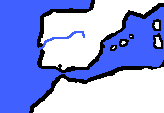Gelion
Retired Captain
I'm very curious about it currently  . I want to hear your views on what you think it was and after I will post a very interesting story I read recently.
. I want to hear your views on what you think it was and after I will post a very interesting story I read recently. 
In your view - what was Atlantis?
 . I want to hear your views on what you think it was and after I will post a very interesting story I read recently.
. I want to hear your views on what you think it was and after I will post a very interesting story I read recently. 
In your view - what was Atlantis?

 ) sea channels (trenches) and a temple of Poseidon. Tertessos had all of this?
) sea channels (trenches) and a temple of Poseidon. Tertessos had all of this? I'd post my opinion, but I did that on the last 10 or so monthly Atlantis threads and I don't like repeating.
I'd post my opinion, but I did that on the last 10 or so monthly Atlantis threads and I don't like repeating. can you post links to the old ones plz?
can you post links to the old ones plz?
